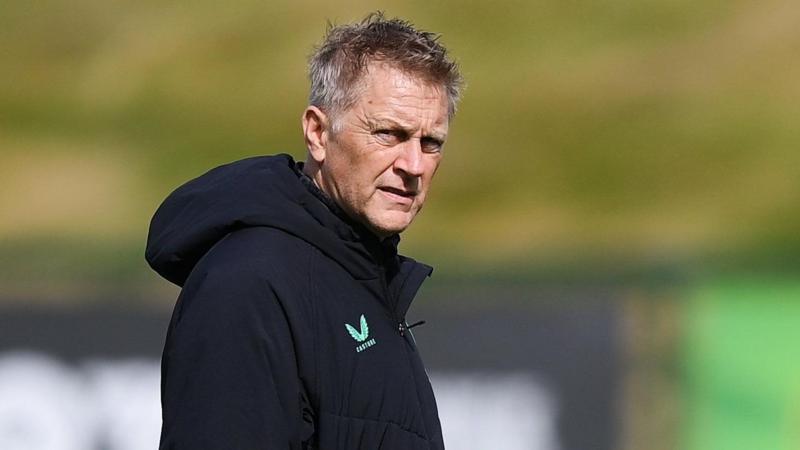Hallgrimsson Sidesteps Questions on Equal Pay Controversy



In a recent discussion surrounding sports and gender equality, Republic of Ireland manager Heimir Hallgrimsson weighed in on the ongoing conversation about pay parity between male and female athletes. During a press conference, Hallgrimsson addressed the complex issue of gender pay equality in soccer, noting his position on the matter as somewhat peripheral; he acknowledged that the decision-making power does not lie with him but with the higher echelons of the sports administration.
The topic of pay equality in sports has attracted increased attention in recent years, especially with high-profile cases such as the U.S. women's national soccer team's lawsuit for equal pay, which they settled in February 2022. The lawsuit highlighted the significant pay disparities that can exist between male and female athletes, despite similar levels of achievement and commitment to the sport. In this light, Hallgrimsson's remarks reflect a broader, ongoing global dialogue about fairness, recognition, and the valorization of women's sports.
Heimir Hallgrimsson, who took over the reins as manager of the Republic of Ireland team in 2023, is a seasoned coach with a deep understanding of soccer dynamics, both on and off the field. Before his appointment to Ireland, he famously co-managed the Iceland team that made a historic run to the quarterfinals at UEFA Euro 2016, marking one of the tournament's most memorable stories. His career shift into managing the Irish team brought with it a mix of expectations and optimism, as the team seeks to revive and fortify its international standing.
While his focus has predominantly been on improving team performance and securing competitive success, Hallgrimsson also navigates the broader responsibilities that come with being a figurehead in soccer, which includes addressing societal and ethical issues such as gender equality. This is indicative of a changing landscape in sports where roles traditionally focused solely on athletic performance now intersect with advocacy and leadership on cultural and social issues.
Ireland itself has seen considerable discussion and initiatives aimed at promoting gender equality in sports. For instance, in 2017, the national governing bodies for soccer, rugby, and hockey in Ireland pledged to achieve at least 30% female representation on their executive boards. More recently, the emphasis has shifted towards bridging the pay gap. For example, in 2021, the Football Association of Ireland announced an agreement to provide equal match fees for the men’s and women’s teams, showcasing a tangible move towards diminishing the pay disparities.
As Hallgrimsson rightly points out, the specifics of these agreements and the journey towards complete parity involve multiple stakeholders, including sports federations, team sponsors, and broader societal support. His comment underscores a recognition of the systemic nature of issues like pay equality which require concerted, collective efforts rather than isolated decisions.
Going forward, the challenge for sports leaders and administrators is not just in acknowledging the disparity but in enacting and sustaining measures that support gender equality comprehensively. For managers like Hallgrimsson, their public platform can be a powerful tool in advocating for change, by both setting an example within their teams and contributing to the broader discourse in the public domain.
In essence, the journey toward pay parity in sports like soccer is emblematic of the broader struggles for equality in various fields. Leaders in these areas, from coaches like Hallgrimsson to administrators, have a crucial role in shaping the future of these endeavors. Their actions and words can significantly influence perceptions and policies, underscoring the interconnectedness of sport, society, and social justice. As this narrative unfolds, it will be intriguing to see how figures like Hallgrimsson navigate their roles not just as sports strategists but as advocates for equality and change.